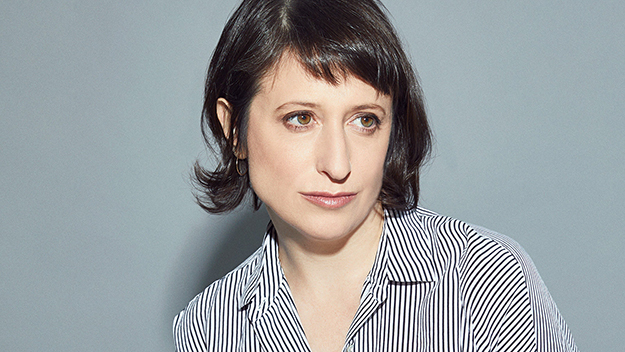Reaching Out: Eliza Hittman, Filmmaker
“Hey, how you holding up?” In this time of reaching out and touching base, we asked colleagues across the American film ecosystem how they’ve been affected by the COVID-19 pandemic, what adjustments they’ve been making on the fly, and what they expect is coming down the pike. This series will be updated regularly here as we conduct additional status checks.

THE FILMMAKER: ELIZA HITTMAN, NEVER RARELY SOMETIMES ALWAYS
Eliza Hittman’s Never Rarely Sometimes Always opened as scheduled on Friday, March 13—a cursed date, as its release, along with a scheduled Film Comment Talk with the director, was subsumed in the domino-collapse of theater closures in NYC and elsewhere. Interview conducted by phone at 10:30am, Thursday, March 19.
Condolences—that seems like a big word, but I was so excited to see this film.
I think it’s appropriate.
I know that I will eventually see the movie, but this release is a big deal for you and I hope you’re giving yourself space to feel sorry for yourself [EH laughs] amidst everything else there is to feel sorry for.
Thank you. It’s a bit heartbreaking.
When did you get the sense that the release of the film would be affected?
It’s been a very blurry few weeks. I’ve been running a marathon, I feel like. I finished the film, we premiered at Sundance, went right to Berlin, and right into the release, so I’ve really just been working and promoting; everything that was happening in the world was a bit in the distance. And then it just kept closing in. I don’t know the exact moment I realized that the whole release was going to be curtailed. Right before the film opened [on Friday, March 13] we had a big group call about what to do; it seemed really difficult to pivot and to pull it.
It was maybe Tuesday or Wednesday that the first movie theaters in New York closed, volunteer-run venues where it’s maybe easier—
Wait, what day is it?
Today is Thursday. Tuesday the 10th or Wednesday the 11th is when Spectacle and Light Industry and Anthology started to close. But your film did open, technically.
We opened—we had a big talk about whether or not we could pull it. Because it seemed like that day, that Friday, the whole city was going dark.
What were the difficulties that made pulling it impossible? Just the full expenditure of the release?
I’m not a distributor, so I don’t know the work that it takes to get a movie into a theater, but I have a feeling it was relationship-driven.
Can you talk at all about the plan going forward?
We haven’t all agreed upon a strategy moving forward, because the landscape is so unknowable. I think Focus is concerned that if they put the release on hold, and try to release over the summer, will theaters be open is a question. Everybody knows that the fall is a very competitive and expensive landscape to open a movie, so there’s concerns that that’s impossible for my film. I think they don’t want to lose the momentum for my film and the only way to capitalize on the momentum is to do something like this paid VOD platform with Universal. That’s the direction, unfortunately, I think this is headed.
“Unfortunately”—what do you see as the drawbacks?
It wasn’t our strategy at all with the movie. It’s not that kind of film, that draws [VOD viewers]—it’s not cast-driven. I don’t know if it’s the kind of movie people want to watch in this vulnerable moment. I don’t know—I don’t know what kind of content people are drawn to at this moment. Who knows, who knows.
Most broadly, these are supposed to be questions about the challenges you’ve faced so far and the concerns you have going ahead, so anything that’s on your mind, feel free to jump in.
The sad thing is that the film was going to have theatrical releases internationally. So it’s not just the impact of losing a US theatrical run, it’s the impact of losing our plans internationally. We were going to open in theaters in Germany in June, in France, in the UK—it’s pretty devastating.
How far into the future are you thinking, about the film, or your career?
Career-wise, I have two challenges. I’m a professor, I teach at Pratt, and I have a senior studio class, and they’re all trying to finish their thesis films; right now they’re really upset about not having commencement, [not] being able to finish their films in the way they were hoping to. I’m straddling the role of filmmaker, the role of professor, the role of mother—at home with a five-year-old, so just figuring out how to navigate the next steps for the film, for my students, and for my son and for myself are very challenging.
Are you seeing or hearing anything in the festival or independent film world about development and funding for upcoming projects?
I’m not sure. I think everybody is just thinking about how there are all these films just waiting on a cue to be released, and what’s going to happen to them and when. All my focus at the moment is on the distribution landscape. I’m going to start writing another film, probably in the summer when I finish my teaching responsibilities, and already have some development funds in the works for that, so I’m less concerned. And obviously I have a dual income and job security, so I’m not one of those vulnerable artists who’s relying on production starting back up.
And just because of where you are in the cycle, this is not when you were expecting to go into production.
I feel lucky—the silver lining is that I got to premiere the film in the US, I got to premiere the film internationally, and it was celebrated; I’m sad that it won’t have the theatrical life that we had planned, but I also think you have to be realistic and adjust the sails a little bit.
I think the film will still be awards-eligible…
Your film did have a Times review.
We still have a lot of press that we’re holding at the moment.
Do you think your film reflects on the current crisis, being a film about the gaps in the American healthcare system.
Yeah, I think the film is about the way the system fails women… Sorry, I’m being chased by a five-year-old. Every room I go in, there’s a five-year-old behind me. I’m losing my chain of thought. Yeah—the film is about a system that fails women, particularly women who are vulnerable and isolated. It reflects on themes that people are discussing at the moment: Who gets help, and why?
Read more from this ongoing series here.
Regular Film Comment contributor Mark Asch donated his fee for this series to the Cinema Worker Solidarity Fund, and encourages you to make a donation as well.





